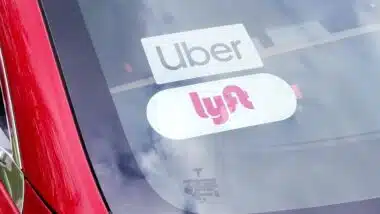
A recently proposed class action lawsuit claims that online hotel booking platform, Agoda, fabricated fake discounts and used a false sense of urgency as a uniform policy and sales tactic, in violation of several California consumer protection laws.
Plaintiff David E. Martinez commenced the Agoda class action lawsuit on behalf of himself and others who secured hotel rooms in reliance on the platform’s purportedly deceptive prices and false advertising. Originally filed in Superior Court in California on June 3, 2020, the case was removed to the United States District Court for the Southern District of California on July 9, 2020.
According to the allegations in the lawsuit, Agoda advertised false discounts, displayed fake original prices, and regularly claimed only a few rooms were left at a hotel property to induce bookings, when in fact, the hotel may have been nearly empty. Martinez contends that Agoda’s alleged tactics resulted in $25.3 billion worth of bookings total through the website and app in 2019.
What Is the False Advertising Alleged in the Agoda Class Action Lawsuit?
Martinez asserts in the Agoda class action lawsuit that the online hotel booker had a practice of misleading consumers that they were getting a good deal on a hotel room by displaying fake original prices at much higher rates than the rooms were actually rented.
Agoda’s purported scheme is described in the lawsuit, alleging that Agoda lists a discount on the fake original price. Martinez states in the suit, “This creates the misleading impression in the mind of the consumer that they are getting a good deal on the room.”
He also argues that Agoda advertises rates are only available for a limited time — or “today” — when the same rate is actually available for longer.
To further its alleged scheme, Martinez says Agoda advertises that only a limited number of rooms are left when it cannot possibly have access to the data concerning how many rooms are available since they are in a constant state of flux. He asserts that Agoda fabricated statements about the number of rooms left with specificity to “increase their believability.” The lawsuit alleges that rather than advertising one room as being left, Agoda may represent that there are three or five rooms available.
Martinez claims that Agoda’s misrepresentations and tactics are likely to deceive consumers and create a false sense of urgency and popularity in order to induce sales.
In the lawsuit, Martinez contends that Agoda’s representations about the number of rooms available at a hotel can easily be disproved. He states, “Agoda’s claims that there are just a handful of rooms left at gargantuan properties with 1000 rooms or more are debunked by a quick visit to the hotel and inquiry at the reservations desk. They are also debunked by current events. For example, Agoda forgot to adjust its marketing scheme for the COVID-19 pandemic and kept claiming that its properties were almost (or only had a few rooms “left”) even though, in reality, the hotels were nearly empty due to the pandemic.”
The lawsuit alleges that the same marketing tactics are used on both Agoda’s website and the mobile app, violating California law prohibiting “‘phantom’ price reductions” and deceptive or misleading claims of discounts.
Martinez asserts Agoda’s marketing was “a significant inducement” for his bookings through the online platform. He stated if he had known Agoda’s advertising was false, he would have sought an alternative means of booking the room or booked directly with the hotel.
Martinez raises causes of action under California’s Unfair Competition Law, the False Advertising Law, and the Business and Professions Code. He also claims breach of contract, breach of express warranty, and unjust enrichment as a result of the deception and financial harm he claims to have suffered.
How Did Agoda Allegedly Violate California False Advertising Law?
California’s False Advertising law prohibits companies from advertising information to consumers that they know to be false or misleading.
Among the allegations in the Agoda class action lawsuit, Martinez specifically asserts that the online hotel booker violated the consumer protection law by claiming that hotel rooms were discounted, using language such as “sale,” “discount,” and other similar words. Additionally, the suit claims that Agoda didn’t disclose that the price it advertised as a discount didn’t offer the consumer savings, but was actually the real price.
Martinez claims that he and the other class members relied on Agoda’s purported conduct and lost money as a result of the misrepresentations.
Can I Join an Online Hotel Booker False Advertising Lawsuit?
According to statistics, almost a quarter of consumers who booked hotel rooms using a third-party online hotel booker said they were misled.
If you suffered financial harm due to an online hotel booking platform’s false advertising or price deception, you may be able to join a class action lawsuit to recover your damages. An experienced class action attorney can discuss your legal rights and remedies.
The Agoda Class Action Lawsuit is Martinez v. Agoda Company PTE. LTD, Case No. 3:20-cv-01289-JAH-MSB in the United States District Court for the Southern District of California.
ATTORNEY ADVERTISING
Top Class Actions is a Proud Member of the American Bar Association
LEGAL INFORMATION IS NOT LEGAL ADVICE
Top Class Actions Legal Statement
©2008 – 2026 Top Class Actions® LLC
Various Trademarks held by their respective owners
This website is not intended for viewing or usage by European Union citizens.















2 thoughts onAgoda Class Action Lawsuit Says Online Hotel Booker Advertises Fake Discounts
Purchased two rooms at Paris, Las Vegas through Agoda. They called it Paris Spa By Mandara, despite me letting them know that this information was incorrect, no changes were made and it’s still being advertised as such. Before finalizing the purchase, I wrote to their customer care and asked whether the fee included taxes and resort fees. I was told unequivocally YES. Then I found a cheaper price through Agoda again, and cancelled my original reservation and booked the cheaper one knowing that it included taxes and resort fees. When I got to the Paris Las Vegas hotel, I was asked to pay roughly $124 in additional fees, per room (2 rooms total, for 2 nights). I was told by the hotel that if I didn’t pay it I would not be allowed to stay, and since I arrived with my handicapped father, my teenage son, and my girlfriend, I was left with no choice but to pay for it.
I reached out to Agoda on several occasions and talking to them is like talking to a non programmable robot. The same words were uttered time and time again. I asked to speak to a supervisor on several occasion, and each time was denied that privilege. The reps apperantly are penalized if they do not resolve the issue themselves, as talking to a supervisor is like talking to God himself. Each call took between 30 minutes minimum and 1 hours each time. The reps are clearly in no position to handle cases like mine, but they refuse to transfer me to a Supervisor. After a few calls and insisting each time, I finally got through to 1 supervisor who was not able to resolve the issue, and after trying again and again, finally got through to a second supervisor who finally decided to reimburse me the additional fees…but for one room only! What the heck! I emailed them back reminding them that there were 2 rooms booked and that I expect to get reimbursed for both rooms. Also, I do not feel comfortable putting my bank account information through a secure link. Why can they not reimburse me on my credit card with which I paid? Still waiting for an answer.
Add me please